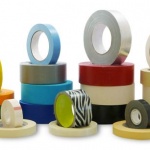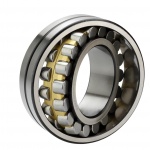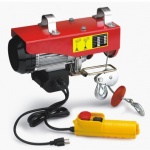A lot of suitable general-purpose adhesives are available in the market, but for some materials, particular types of adhesives and sealants are required. This Buying Guide will help you decide what parameters you need to consider when opting for a synthetic resin adhesive.
What is the Exact Meaning of Synthetic Resin Adhesive?
Nowadays, we use synthetic resins and polymers. When the synthetic adhesive resin bonds components each other, then the adhesive initially wets the surface, thereby filling the gap between the surfaces, and then it solidifies. When solidification is completed, the bond can withstand the stress of use. The strongest adhesives harden through chemical reactions and have a pronounced affinity for the joint surfaces. Synthetic Resin Adhesive bonding is even sometimes called chemical joining.
Synthetic resins are materials that have properties like common plant resins. They are thick fluids that are fit for solidifying for all times. Synthetically, they are altogether different from resinous mixes emitted by plants.
Synthetic resins are of several classes. Some are manufactured by esterification or soaping of organic “Resin” which may be applied to one of the two monomers in a copolymer, the other being called a “hardener”, as in epoxy resins. For thermosetting plastics that require only one monomer, the monomer compound is the “resin”.
List of Different Types of Synthetic Resins and Their Further Uses
Epoxy resin is the most commonly used synthetic resin. This stuff is made through polymerization and polycondensation responses. They are utilized as a thermoset polymer that is generally used for glues. Epoxy resins are mostly solid in nature.
It is considerably more grounded than concrete, while additionally staying waterproof. You will doubtlessly discover flooring organizations utilizing this kind of resin. Epoxy resins, otherwise called polyepoxides, are a class of receptive prepolymers and polymers which contain epoxide gatherings.
Mostly Epoxy resins get synergized by homopolymerization which is reacted by the cross association of epoxy resins or with a broad assortment of co-reactants including polyfunctional amines, acids (and destructive anhydrides), phenols, alcohols and thiols.
These co-reactants are regularly alluded to as hardeners or curatives, and the cross-connecting response is ordinarily alluded to as curing. These resins can be used in different industries including metal coatings, used in hardware and various home sanitary/electrical parts and electronics/LED, high-pressure electrical encasings, paintbrushes fabricating, fiber-strengthening plastic various materials and auxiliary cement.
There is additionally something which many refer to as engineered throwing resin. This sort of resin is known as a methyl methacrylate fluid and the fluid does not set independent from anyone else, thus a person needs to add an impetus to the blend.
Acetal resin is another manufactured resin. At the point when contrasted with other comparable resins, one can see the basic chain structure. This resin is utilized to make the parts that have a high firmness, low grating, and stunning dimensional dependability. You would discover these materials mostly utilized as a part of the car and consumer electronics industry.
Commonly used brands are Fevicol Synthetic Resin, 3M synthetic Resin, Araldite Resin, etc.
How to Choose the Best Synthetic Resin Adhesive for Your Needs
You can choose between diverse options when it comes to opting for the best adhesive and sealants that would be the perfect fit for your job. Some of them are listed under.
#1)PVA (Polyvinyl adhesive)
Commonly known as PVAs, they are available in a range of general-purpose formulas, along with wood and building adhesives. When you squeeze them from the tube, they appear to be milky white but actually they’re transparent when they dry. Some are even waterproof in nature, which serves best for areas that get dampened.
#2)Rubber-based contact adhesives
These adhesives can be used to glue synthetic laminates to wood, man-made boards, and plaster. You can normally apply it to both the surfaces and you can press them together with clips, tape other heavier objects.
#3)Epoxy resin adhesives (two-part adhesives)
You can use the epoxy resin adhesives to stick materials like metal, ceramics, stone, glass and rigid plastic to wood and glass. Two-parts of epoxy resins are sufficient for outdoor use or for joints that have to be waterproof but you need to take extra amount of care, because they can prove to be toxic if they’re in powder form. It is always advisable to check the product label because some adhesives might not stick all materials.
#4)Flooring adhesives (rubber resin adhesives)
These adhesives as well as synthetic latex adhesives can stick floor coverings to floors. They can withstand a limited amount of water and are a bit flexible in nature so you can rest assured that they will not crack when you put your furniture on the floor.
#5)Tile/coving adhesives (synthetic latex adhesives)
These adhesives are ideal for fixing expanded polystyrene ceiling tiles and coving the plaster or plasterboard as they can easily fill the gaps. They can also be used on floor tiles and just like rubber resin adhesives, they allow a limited amount of movement without cracking.
#6)Grab adhesives (acrylic polymer adhesives)
You can opt for these instead of nails and screws in order to fix your wooden mouldings and skirting boards.
#7)Filler adhesives (polyurethane-foam adhesives)
The filler adhesives can be used as great gap-fillers in wood, masonry, plaster, and stone as the foam expands when you spray it on. You would need a specially formulated solvent if in case you need to remove them.
#8)Super-glues (cyanoacrylates)
These fast-working glues are best known to stick to all kinds of small household objects, including metal, glass, ceramic and plastic. These super glues should be used carefully, as they stick your skin to other materials and surfaces. And in case you mistakenly stick the wrong objects together, you’ll require special superglue remover to get them apart.
#9)Applications:
Synthetic Adhesive resins are presently quite effective as well as versatile to fast apparatus in paper change and bundling fields along with being put as wood cement. It is presently utilized as a part of glues for different applications as said underneath :
- Book Binding industry.
- Assembling of Envelopes, Paper Bags, Gummed Tapes, Paper Tubes, Drinking Straws, Multi divider Shopping Bags, Folding sort Lunch Boxes, Sticking Marks, Films and Foils, Paper sheets, Milk Cartons and so on.
- Vehicle Upholstery.
- Manufacturing and assembling of Cigarette Tips.
- Pencil Industry.
- Assembling of Tile bonds.
- For Lamination works and for joining at least two employees of material into another composite.
- For official of concrete paints to workmanship dividers
- Lamination of Plywood, Veneer to Plywood. Any bonding between woods, laminate Block board/Particle Board/MDF.
Safety Precautions At The Time Of Using Resin Adhesive
No matter what the surfaces are that you need to stick, you first need to ensure that they’re clean, dust-free and surely not damp or wet. If need be, you can hold them together with tape, clamps, or even temporary nails till the time your adhesive is dry. It’s important to check the recommended setting times as well as bearing in mind that the time might vary in summer or winter due to varying temperatures and humidity ranges.
Whenever you use any adhesive or sealant, ensure that you always read and follow all the manufacturer’s instructions. Working in a well-ventilated area is also necessary because some glues are mixed with solvents that give off fumes. It is advised to take particular care with superglues, that can bond human skin. You should also consider the fact that a lot of adhesives are flammable.
Buy Synthetic Resin Adhesives Online at IndustryBuying.com
Generally used in commercial and home-based applications to save time and enhance productivity, Industrybuying.com offers a wide assortment of synthetic resin adhesives. The synthetic resin adhesives that we offer are water-resistant and are best suited for woodwork. To cater to the growing demands, Industrybuying stocks in resin adhesives from top-tier brands such as Fevicol and 3M. Industrybuying serves as a one-stop-shop for all kinds of industrial tools at best prices online.
Besides these, you can even browse through our vast product category of adhesives and sealants to get the best sealing options. Our online payment options include Credit cards, Debit Cards and Net Banking. You can also opt for Cash on Delivery.
Free shipping above Rs.1000, bulk buying advantage, easy payment options like credit/debit card, COD, net banking, e-wallets, etc, doorstep delivery, branded products at the best prices online and easy return policies are some of the reasons that make online shopping at Industrybuying a bliss. Check the new range IndustryBuying offers for the latest range of synthetic resin adhesives.








Average Rating